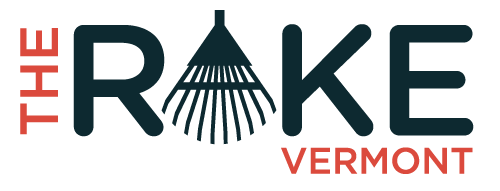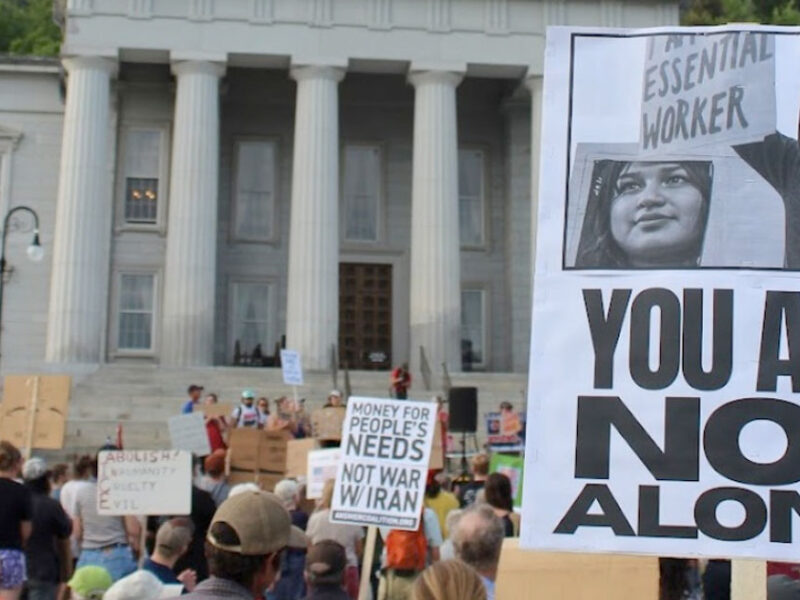The arguments brought against the recent, and since withdrawn, Burlington City Council Boycott, Divestment, Sanctions (BDS) resolution are from the same tired, disingenuous playbook used by liberals and conservatives alike. It is a playbook that uses a small grain of truth to create an avalanche that buries a movement and, in so doing, reinforces the status quo. This may seem simple, but the real trick is to do it all while maintaining a veneer of caring about human rights. The steps are clear, straightforward, and repeatable and have been used for years on multiple topics. The most obvious example, of course, can be found in opposition to the Civil Rights movements in the United States from the 1960s to today. However, these tactics can be found being used to block progress and equality anywhere you see a movement that advocates for human rights.
Below is a non-exhaustive list of some of the tactics that are often used (with great success) to ensure that even small actions against oppression in cities as “liberal” as Burlington can be thwarted. The key theme in each of these approaches is that they will never allow for a genuine interaction about the topic. Instead, they keep both public and private conversations to familiar, tangential talking points.
Private vs. Public
Like chess, there are many openers and this is a nice standard. It begins with a public statement against the movement and in support of the status quo. From here there are myriad options. Some will double down on their statement privately but with more vitriol, while others may state that they do critique the oppressor, but do so only in private spaces where such talk is more “civil.” A common variation is to discuss how difficult this decision was for said local leader, which can have the added benefit of shifting the conversation to their emotions rather than the topic at hand.
If unsure about whether this tactic is used locally, please reach out to a local Rabbi, Mayor, Police Chief, Council Member, or any other leader and ask for a private coffee to discuss your issue of choice on which they have made a public statement. It will lead to good conversation, hopefully good coffee but most likely, not a lot of public change.
Whataboutism/One Side vs. Both Sides/It’s Complicated
The concept with these interrelated tools is to distract the conversation from solutions and move it towards problems which may or may not be related to the topic at hand. Examples are easy to find in everyday conversations: “What about Black on Black crime?” or “What about the many other oppressive states like China? Why single out Israel?” It’s a simple but effective tactic and, in a lovely turn of events, we can blame whataboutism’s origin on the Russians.
The key to these interrelated tactics is to never admit publicly that the oppressor regularly commits multiple human rights violations and has an incredible advantage in power, resources, and support in the form of your tax dollars and our locally based F-35s. The focus must be shifted: “What about the other side and violence they’ve done?” Actual incident reports, which provide context without which real conversation cannot happen, is steadfastly avoided at all costs.
If this seems familiar, these tactics were used to great effect recently against Black Lives Matter. As an antidote to these tempting threads of counterproductive narratives, read a little Tim Wise. Much of the article will also resonate in regards to Palestinian liberation.
Reverse Oppression!
The final trick has been used not just against critiquing Israel, but a host of other issues like Affirmative Action and opposition to police violence. Again, a grain of truth is needed to get the conversation started. Some qualified folks may not get jobs or positions, some cops may be harassed, and yes, antisemitism is real. Of course, while true, all three statements ignore context. As a general rule, this tactic focuses on real or perceived threats to a dominant group and ascribes these threats not to a history of discrimination, oppression and systemic violence by said oppresors against others, but to the out-group members speaking and acting against those same evils.
In our latest public conversation this has meant calling the BDS movement antisemitic, with this claim even including Jewish allies of the movement. If this doesn’t stick, opponents on occasion have taken a more nebulous approach: they claim that criticizing Israel will permit and encourage budding bigots to act on their antisemitism and promote antisemitism in general.
With the knowledge that antisemitism is real and prevalent in our society, this line of thinking allows the arguer to ascribe all future (real or imagined) antisemitic actions and media narratives to a single act like the BDS resolution. As we don’t know the future, how can we prove this is not the case?
Of course in regards to the Jewish people the picture is confounded by our history. This history is what makes the cry of antisemitism all the more repulsive. Given the context of Jewish history, the claim that the BDS movement both is and encourages antisemitism is to trivialize the real threats both historical and current that Jewish people face worldwide.
There are many more tactics and themes not mentioned here, including “professional protesters,” “it’s not our business,” “bad timing,” “poor language” and the ever present threat of “divisiveness.” As we fight oppression, it is important to recognize and discuss the tactics used to maintain the status quo. These tactics and narratives are traps that catch us all from time to time, but the more we critique and analyze them the better equipped we will be as accomplices and comrades. It is important to keep in mind that although at times we must engage with those that disagree with us, we can only do so if the conversation is conducted in good faith.
“Injustice anywhere is a threat to justice everywhere. We are caught in an inescapable network of mutuality, tied in a single garment of destiny. Whatever affects one directly, affects all indirectly.” — Martin Luther King, Jr.
Mike is a social worker type who attempts to stay politically active in a positive way. Results may vary. He is on the editorial collective of The Rake Vermont.



